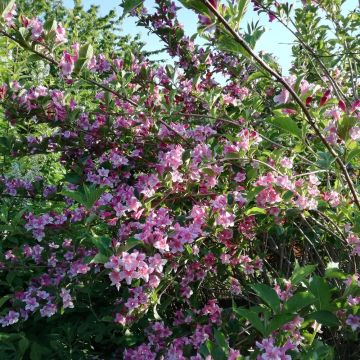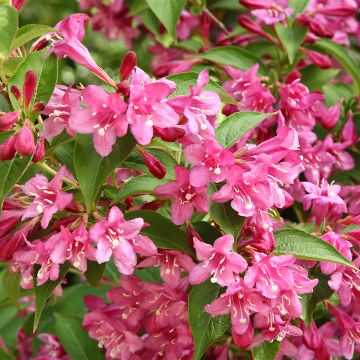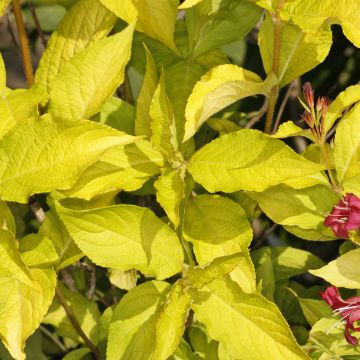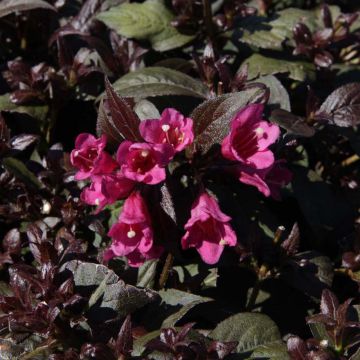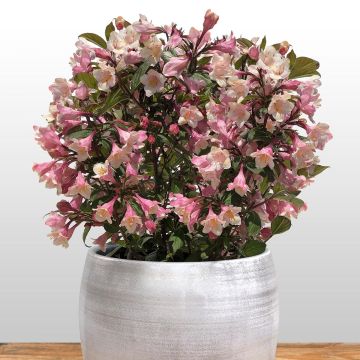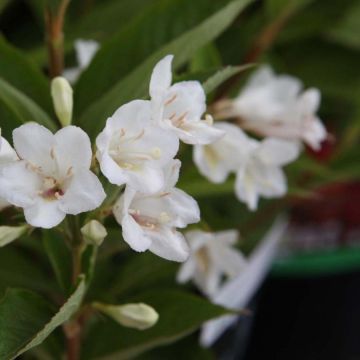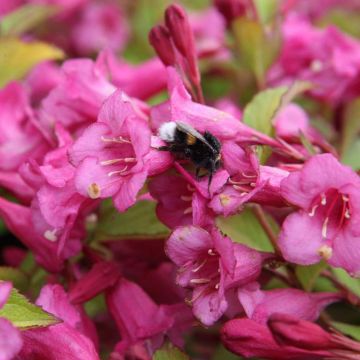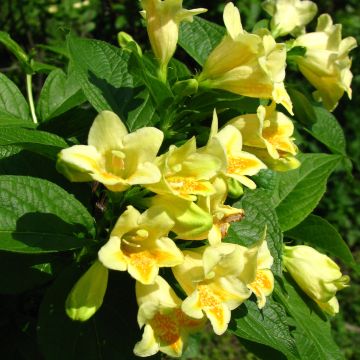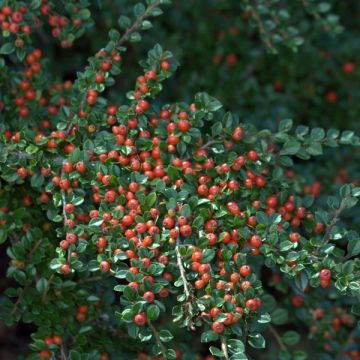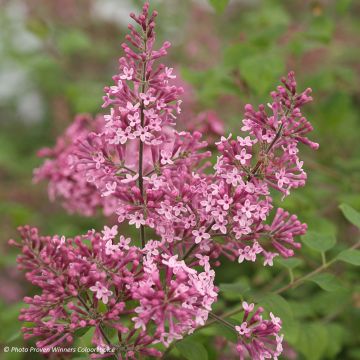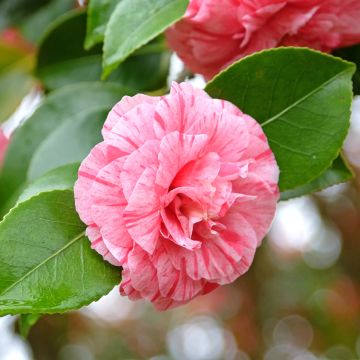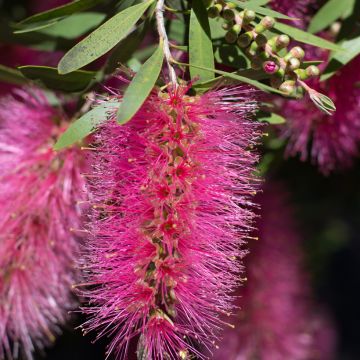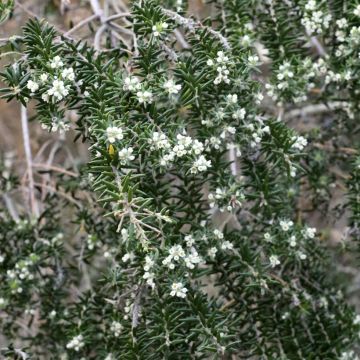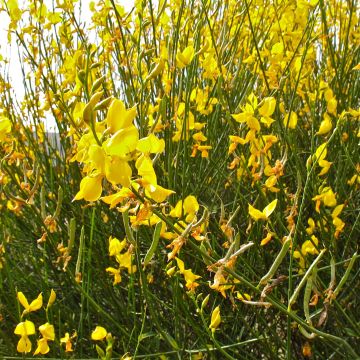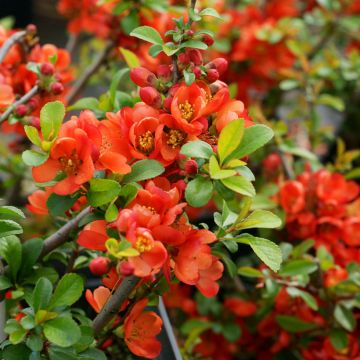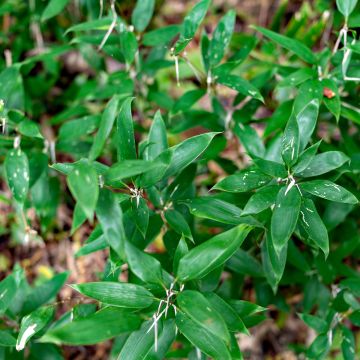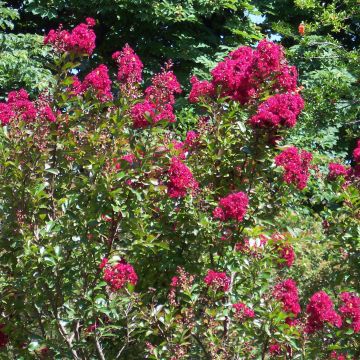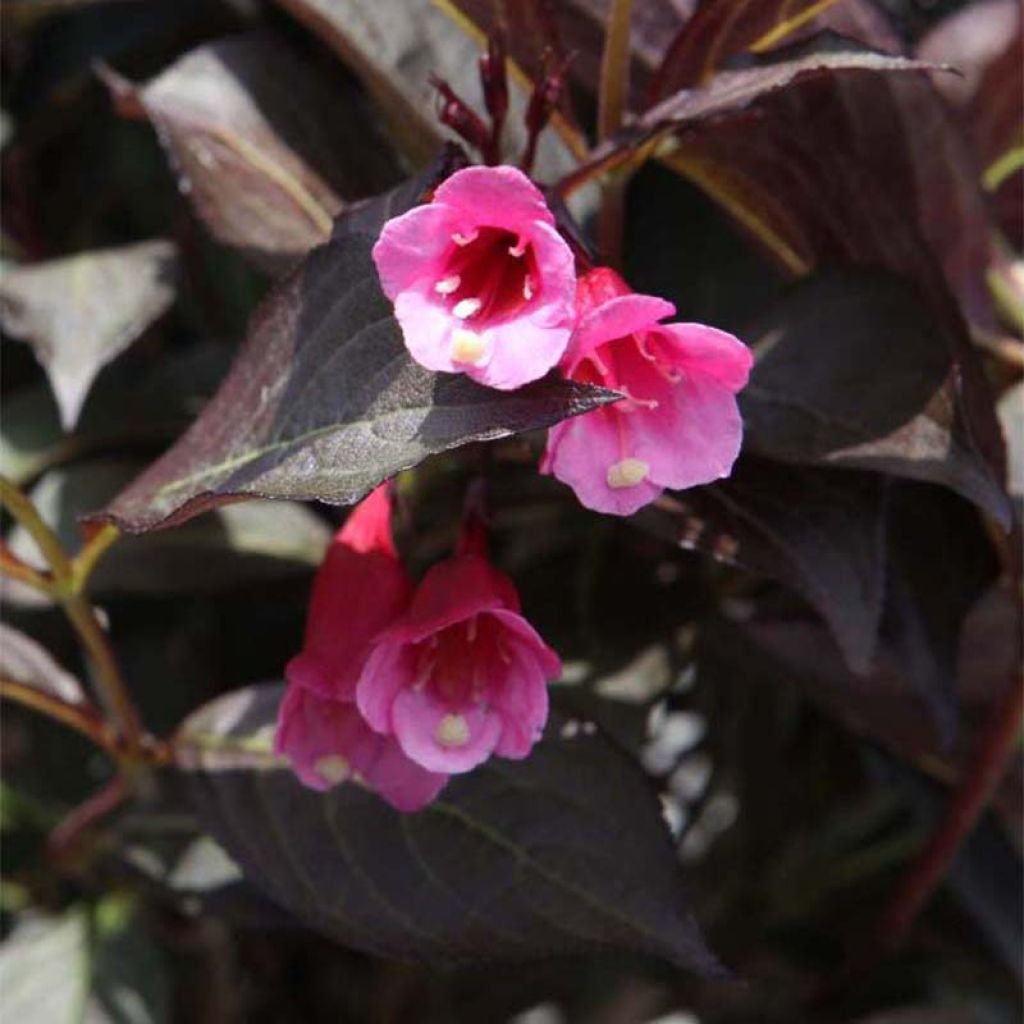

Weigela florida Alexandra
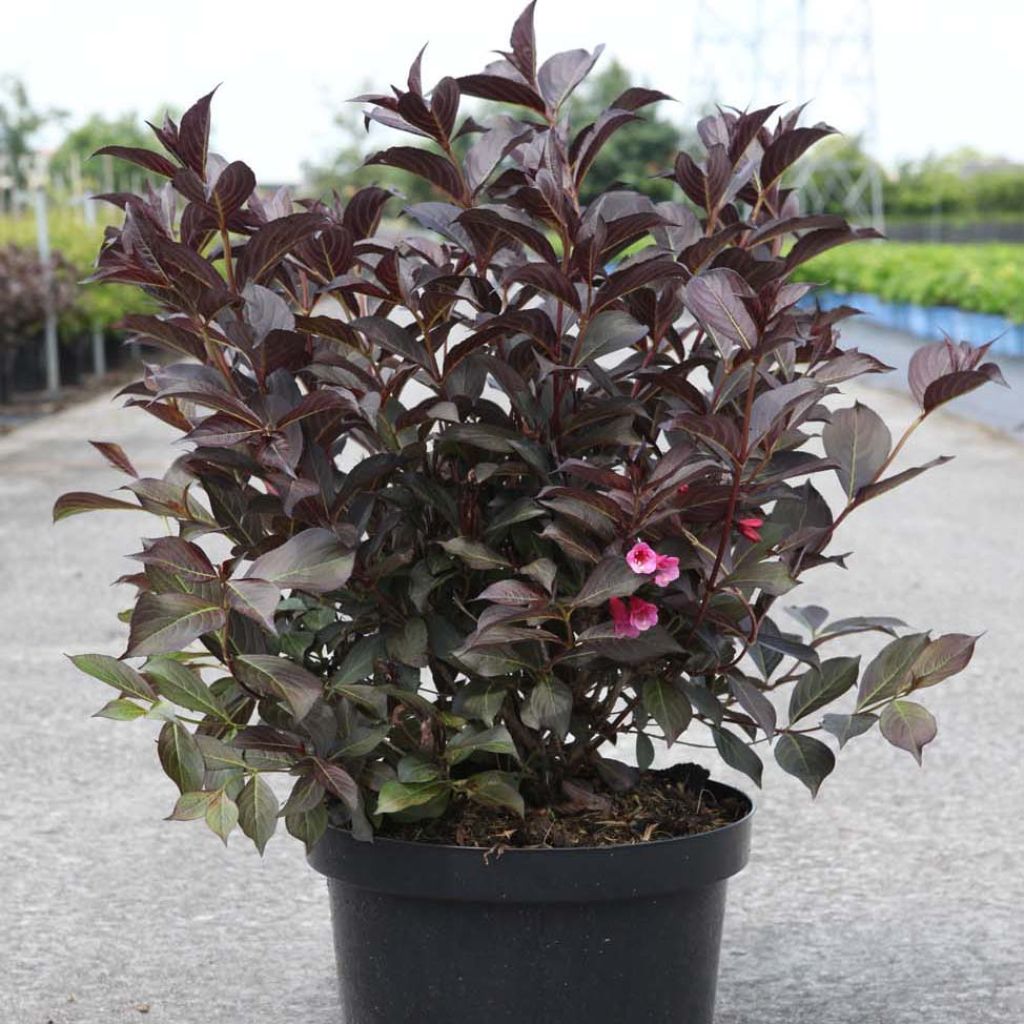

Weigela florida Alexandra
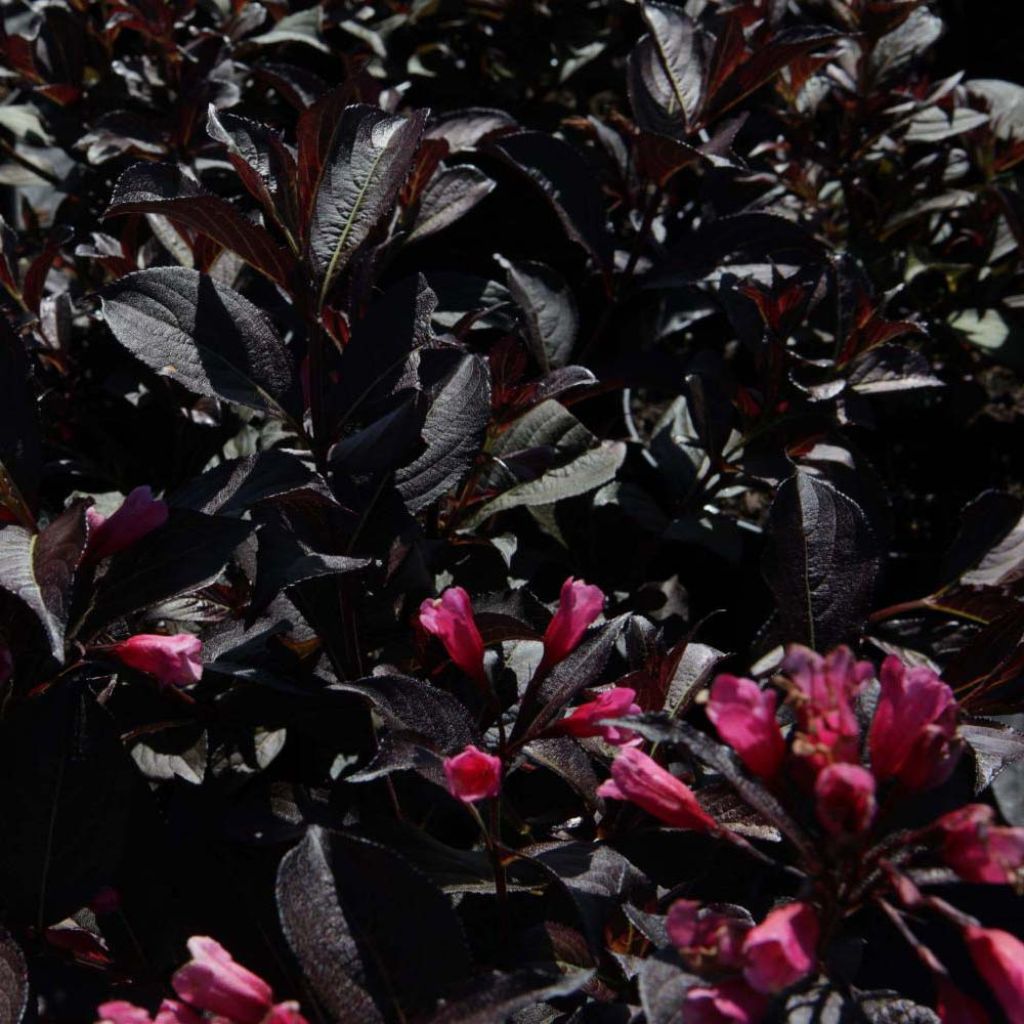

Weigela florida Alexandra
Weigela florida Alexandra
Weigela x florida Alexandra®
Old-fashioned Weigela
This item cannot be shipped to the selected country
Delivery charge from €5.90
Delivery charge from €5.90
More information
Schedule delivery date,
and select date in basket
This plant carries a 24 months recovery warranty
More information
We guarantee the quality of our plants for a full growing cycle, and will replace at our expense any plant that fails to recover under normal climatic and planting conditions.
From €5.90 for pickup delivery and €6.90 for home delivery
Express home delivery from €8.90.
From €5.90 for pickup delivery and €6.90 for home delivery
Express home delivery from €8.90.

Does this plant fit my garden?
Set up your Plantfit profile →
Description
Weigelia florida 'Alexandra' is the only variety that develops the darkest foliage ever observed to date in these plants. This unique purple colour perfectly highlights an abundant and vibrant spring flowering, made up of numerous bell-shaped flowers in a deep pinkish-purple, and retains its beauty until the leaves fall. Displaying a wide and bushy habit, this beautiful bush has a moderate growth suitable for gardens of all sizes and is easy to grow in any fresh and loose soil. Wonderful in a field or romantic flower bed, it also complements a flowering hedge in the company of other flowering or foliage shrubs.
Weigelia florida 'Alexandra' comes from Weigela florida, native to northeastern China, Korea, and Japan. Weigelas are Asian and belong to the Caprifoliaceae family, just like honeysuckles. 'Alexandra' is a calcicolous shrub (preferring calcareous soils) that develops a fibrous and tracing root system, which perfectly supports transplantation. It has a very bushy habit and eventually forms a large multi-branched bush with initially erect branches that arch over time. Its growth is fast in fresh soil, reaching an average height and spread of 2 m (6.6 ft). Its funnel-shaped flowers are a deep pink turning towards red. They are borne in corymbs at the tips of the previous year's branches and bloom abundantly from May to June. Its deciduous foliage consists of lanceolate leaves, slightly undulate and pointed at their ends, measuring 4 cm to 8 cm (1.6 in to 3.1 in) long. Their colour varies from very dark purple to purple tinged with green and black in summer, taking on slightly redder hues in autumn before falling. Note that the foliage colour will be even more intense and dark if the shrub is exposed to the sun.
Hardy down to -20° C (-4° F), 'Alexandra' thrives in a sunny position, in deep, fresh, yet well-drained soil. Its arching and vigorous habit makes it a highly ornamental shrub from spring to autumn. This colourful variety brings life to any bocage hedge and adds character to the humblest of settings. In a flower bed, for example, pair it with other varieties of Weigelas, Elaeagnus pungens 'Maculata', Kerria japonica, Viburnum carlesii or V. trilobum 'Bailey Compact', mahonias, Hydrangea, variegated dogwoods, spireas, ornamental brambles, or even a hedge honeysuckle. In the background, the very dark foliage of holly, boxwood, or yew will provide a beautiful backdrop for its remarkably coloured foliage and provide a dazzling winter scene.
Report an error about the product description
Weigela florida Alexandra in pictures
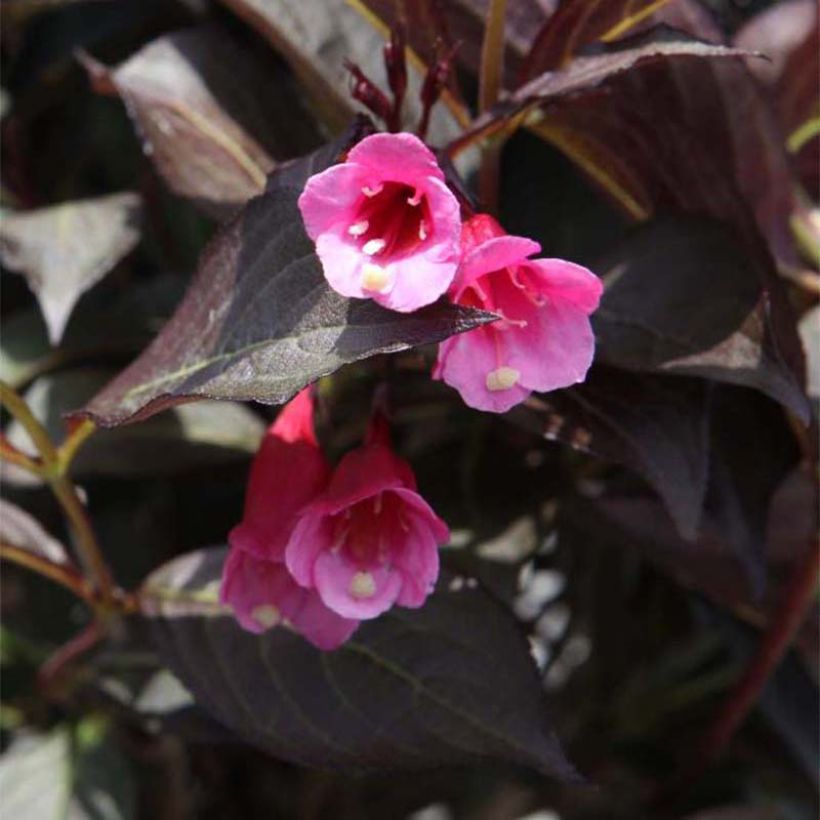

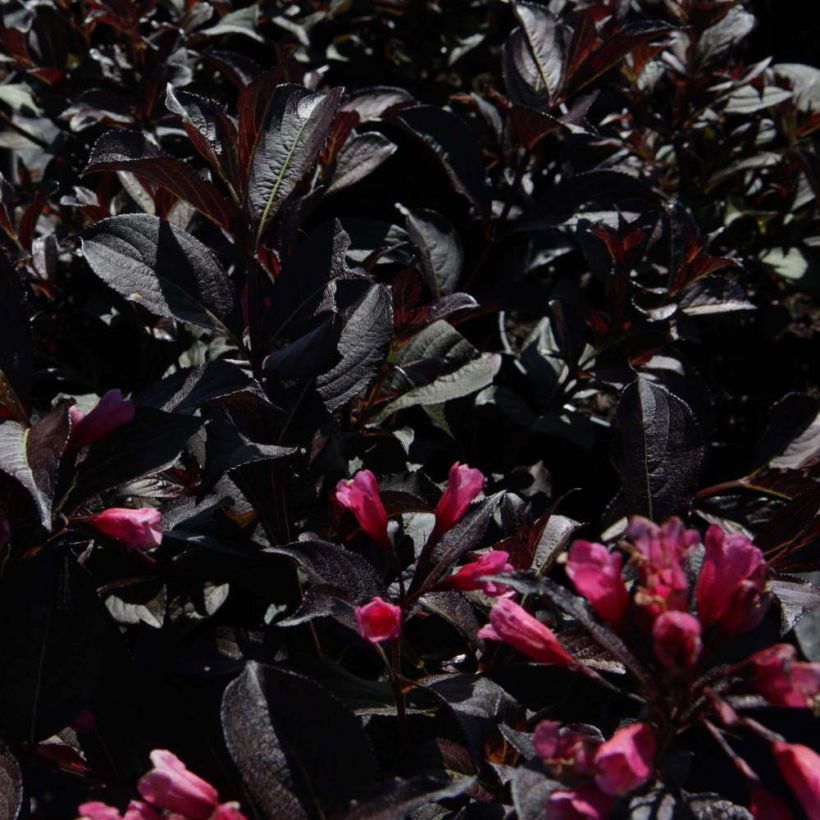

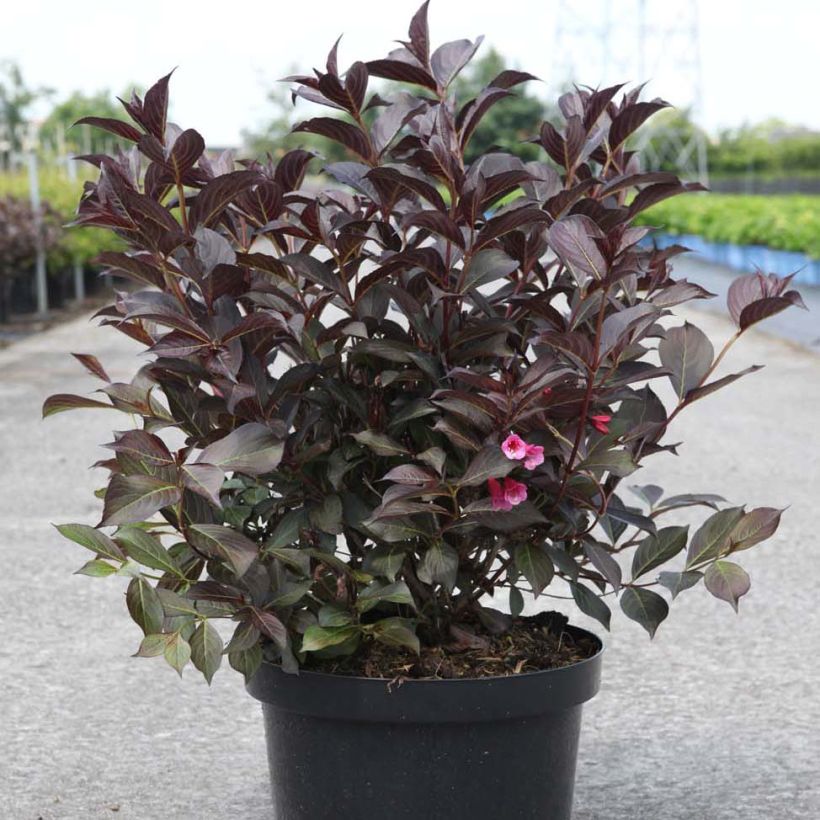

Plant habit
Flowering
Foliage
Botanical data
Weigela
x florida
Alexandra®
Caprifoliaceae
Old-fashioned Weigela
Cultivar or hybrid
Other Weigela
Planting and care
Hardy down to -20° C (-4° F), Weigela florida 'Alexandra' thrives in sunny or semi-shady locations. Plant it in ordinary, deep, moist but well-drained soil, with a neutral to slightly alkaline pH, from October to March (excluding the freezing period). To maintain a compact habit and promote prolific flowering, prune back the branches that have carried the spring flowers by 2/3, just after flowering.
Planting period
Intended location
Care
-
, onOrder confirmed
Reply from on Promesse de fleurs
Hedge shrubs
Haven't found what you were looking for?
Hardiness is the lowest winter temperature a plant can endure without suffering serious damage or even dying. However, hardiness is affected by location (a sheltered area, such as a patio), protection (winter cover) and soil type (hardiness is improved by well-drained soil).

Photo Sharing Terms & Conditions
In order to encourage gardeners to interact and share their experiences, Promesse de fleurs offers various media enabling content to be uploaded onto its Site - in particular via the ‘Photo sharing’ module.
The User agrees to refrain from:
- Posting any content that is illegal, prejudicial, insulting, racist, inciteful to hatred, revisionist, contrary to public decency, that infringes on privacy or on the privacy rights of third parties, in particular the publicity rights of persons and goods, intellectual property rights, or the right to privacy.
- Submitting content on behalf of a third party;
- Impersonate the identity of a third party and/or publish any personal information about a third party;
In general, the User undertakes to refrain from any unethical behaviour.
All Content (in particular text, comments, files, images, photos, videos, creative works, etc.), which may be subject to property or intellectual property rights, image or other private rights, shall remain the property of the User, subject to the limited rights granted by the terms of the licence granted by Promesse de fleurs as stated below. Users are at liberty to publish or not to publish such Content on the Site, notably via the ‘Photo Sharing’ facility, and accept that this Content shall be made public and freely accessible, notably on the Internet.
Users further acknowledge, undertake to have ,and guarantee that they hold all necessary rights and permissions to publish such material on the Site, in particular with regard to the legislation in force pertaining to any privacy, property, intellectual property, image, or contractual rights, or rights of any other nature. By publishing such Content on the Site, Users acknowledge accepting full liability as publishers of the Content within the meaning of the law, and grant Promesse de fleurs, free of charge, an inclusive, worldwide licence for the said Content for the entire duration of its publication, including all reproduction, representation, up/downloading, displaying, performing, transmission, and storage rights.
Users also grant permission for their name to be linked to the Content and accept that this link may not always be made available.
By engaging in posting material, Users consent to their Content becoming automatically accessible on the Internet, in particular on other sites and/or blogs and/or web pages of the Promesse de fleurs site, including in particular social pages and the Promesse de fleurs catalogue.
Users may secure the removal of entrusted content free of charge by issuing a simple request via our contact form.
The flowering period indicated on our website applies to countries and regions located in USDA zone 8 (France, the United Kingdom, Ireland, the Netherlands, etc.)
It will vary according to where you live:
- In zones 9 to 10 (Italy, Spain, Greece, etc.), flowering will occur about 2 to 4 weeks earlier.
- In zones 6 to 7 (Germany, Poland, Slovenia, and lower mountainous regions), flowering will be delayed by 2 to 3 weeks.
- In zone 5 (Central Europe, Scandinavia), blooming will be delayed by 3 to 5 weeks.
In temperate climates, pruning of spring-flowering shrubs (forsythia, spireas, etc.) should be done just after flowering.
Pruning of summer-flowering shrubs (Indian Lilac, Perovskia, etc.) can be done in winter or spring.
In cold regions as well as with frost-sensitive plants, avoid pruning too early when severe frosts may still occur.
The planting period indicated on our website applies to countries and regions located in USDA zone 8 (France, United Kingdom, Ireland, Netherlands).
It will vary according to where you live:
- In Mediterranean zones (Marseille, Madrid, Milan, etc.), autumn and winter are the best planting periods.
- In continental zones (Strasbourg, Munich, Vienna, etc.), delay planting by 2 to 3 weeks in spring and bring it forward by 2 to 4 weeks in autumn.
- In mountainous regions (the Alps, Pyrenees, Carpathians, etc.), it is best to plant in late spring (May-June) or late summer (August-September).
The harvesting period indicated on our website applies to countries and regions in USDA zone 8 (France, England, Ireland, the Netherlands).
In colder areas (Scandinavia, Poland, Austria...) fruit and vegetable harvests are likely to be delayed by 3-4 weeks.
In warmer areas (Italy, Spain, Greece, etc.), harvesting will probably take place earlier, depending on weather conditions.
The sowing periods indicated on our website apply to countries and regions within USDA Zone 8 (France, UK, Ireland, Netherlands).
In colder areas (Scandinavia, Poland, Austria...), delay any outdoor sowing by 3-4 weeks, or sow under glass.
In warmer climes (Italy, Spain, Greece, etc.), bring outdoor sowing forward by a few weeks.

































